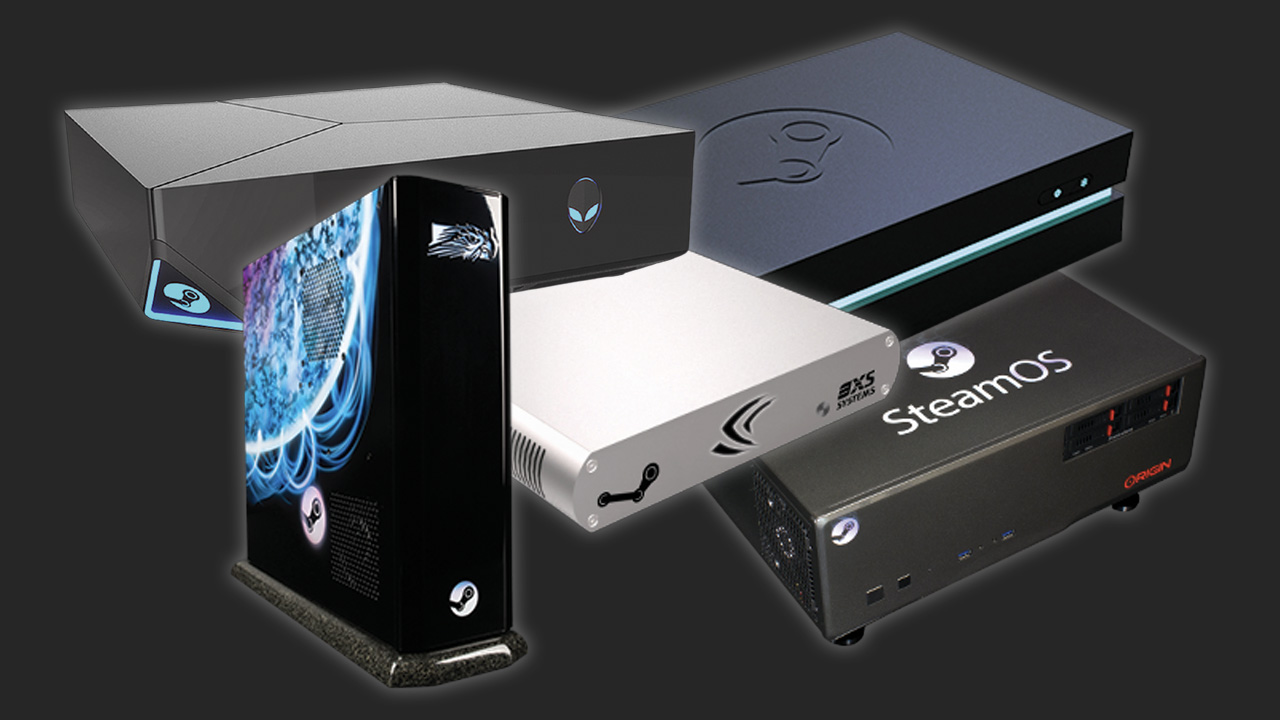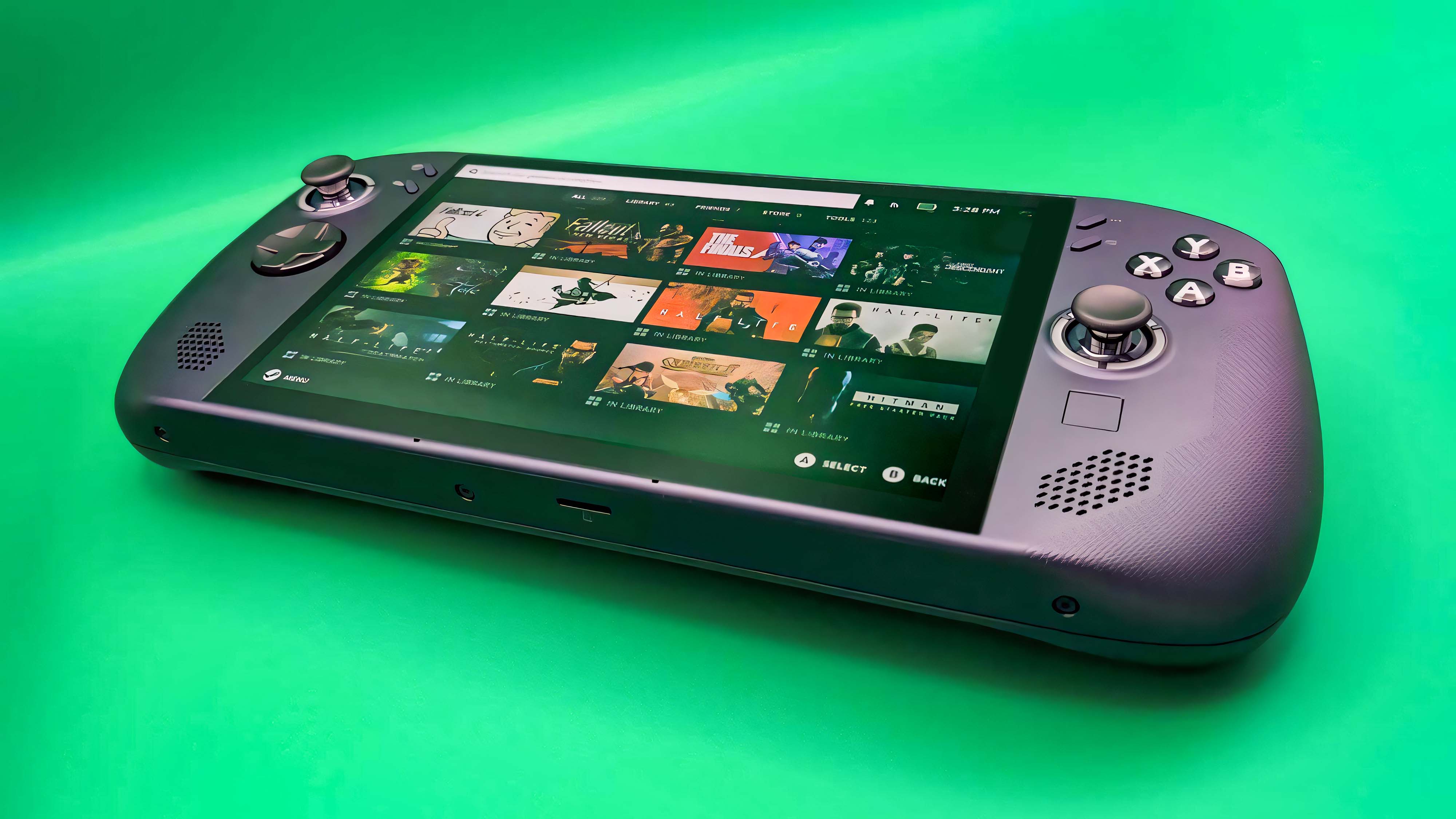Valve already gambled on Steam Machine mini PCs a decade ago — which brands tried in 2014, and would they return in 2025?
The Steam Machine concept isn't new, and OEMs already tried Valve's vision in 2014. Could it be different this time around?
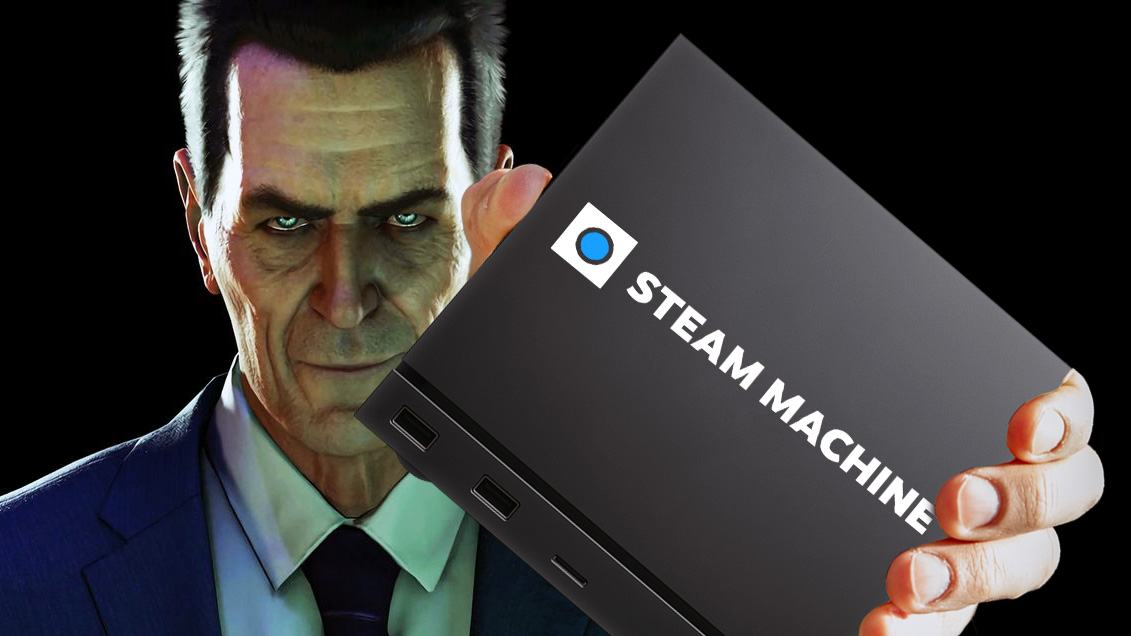
All the latest news, reviews, and guides for Windows and Xbox diehards.
You are now subscribed
Your newsletter sign-up was successful
PC gaming mega-brand Valve surprised us all this afternoon with a trio of hardware announcements, including the return of its once-abandoned Steam Machine mini PC concept, alongside a revival of its similarly ill-fated Steam Controller and, finally, the Steam Frame headset, a sequel to the much more successful (and still marketed) Valve Index for virtual reality PC gaming. For me, the first is arguably the most interesting.
You'd have to survey an astronomical number of PC gamers before you found one who didn't know about Valve and, in turn, its software platform Steam. Industrial naming trend aside, the dominant figures at Valve are responsible for some of the nerdiest and most influential software in prominent gaming categories, such as the paradigmatic Half-Life and its contributions to the first-person shooter genre.
Now, after the roaring success of its still-beloved Steam Deck handheld gaming PC, Valve is seemingly taking everything it learned from its Linux-based SteamOS and its overwhelmingly broad adoption via the Steam Deck and its OLED variant and applying it to a new generation of gaming mini PCs. Not that I wish to imply the effort had gone to waste, but Valve has tried all this before.
Back in 2014, Valve unveiled an initial range of OEM partners ready to develop their own take on Steam Machine desktop PCs, targeting prices "as low as $499 and top end systems rivaling today’s bleeding edge gaming PCs." Of particular interest in this first announcement is the inclusion of the $49.99 original Steam Controller, packaged in each box as standard, unlike the new Steam Machine.
Steam Machines revealed at CES 2014
- Alienware
- Alternate
- CyberPowerPC
- Digital Storm
- Gigabyte
- Falcon Northwest
- iBuyPower
- Materiel.net
- Origin PC
- Next
- Scan
- Webhallen
- Zotac
Even if you weren't paying particularly close attention back then, you'll likely recognize some prominent brands if you're still interested in PC gaming today. Alienware and Gigabyte, in particular, are still extremely prevalent in 2025, though their hardware efforts aren't focused in the same way. The latter, for example, is more recognizable for its desktop components, such as motherboards and graphics cards — just like Zotac.
What happened to the first adopters?
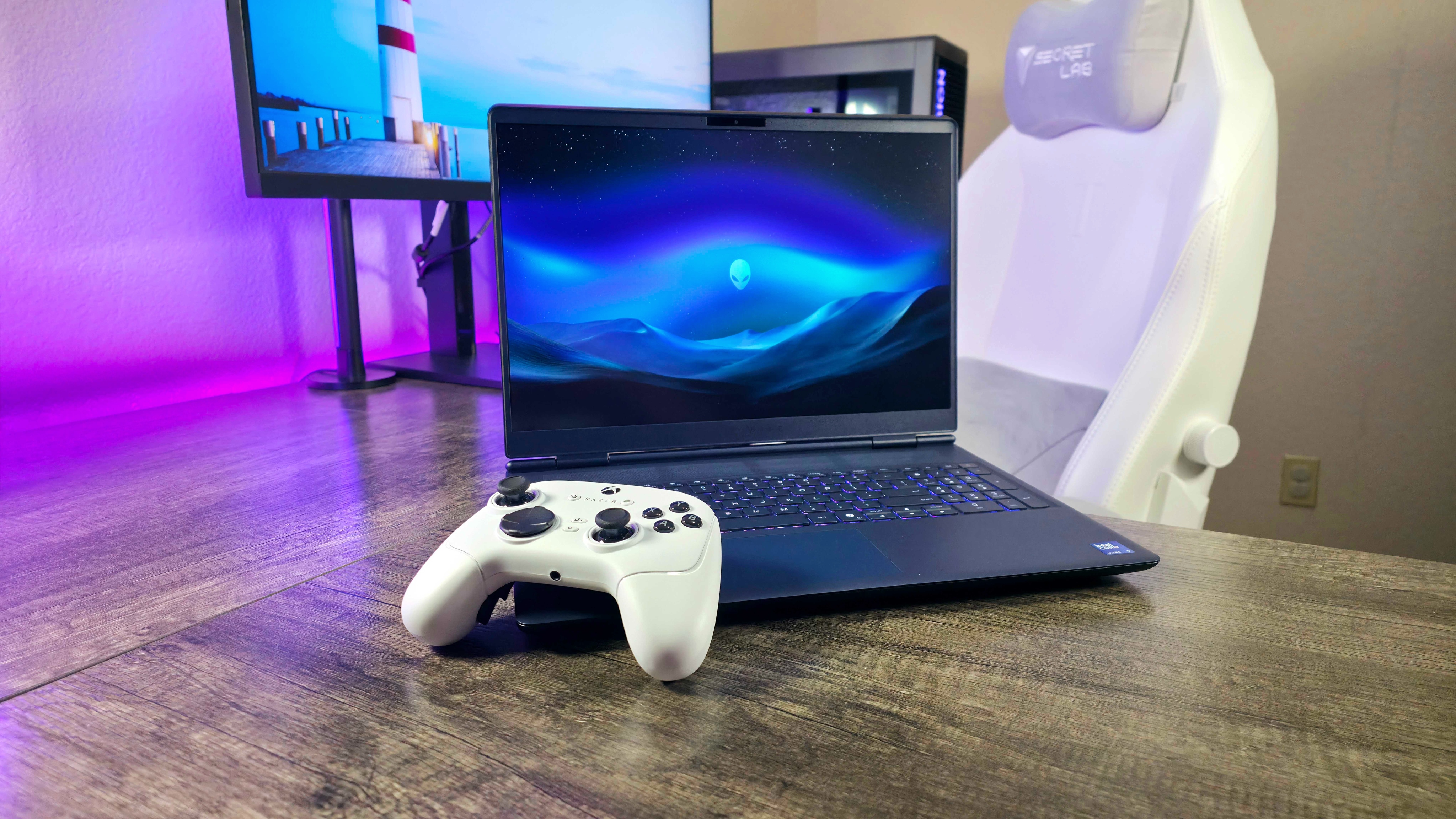
Alienware, on the other hand, firmly remains in the gaming hardware space with high-scoring laptops like the Aurora 16|X and equivalents on the desktop side, including the powerful Area-51 pre-built gaming PCs. We weren't watching SteamOS too closely when the Steam Machine concept was first unveiled, as CES 2014 had exciting news for Windows 8, which took priority (sorry, Valve). Our friends at PC Gamer did test the Alienware Steam Machine, but Linux gaming showed it still wasn't a threat to Windows, and the compact PC didn't impress.
Would Alienware come back for another Steam Machine? My gut says no.
Would Alienware come back for another Steam Machine attempt now that Valve has refined SteamOS and its Proton compatibility layer for Windows PC games? My gut says no, but it isn't impossible. Personally, I lean towards the doubtful side simply because Dell's gaming division hasn't shown any interest in building a handheld gaming PC, despite being the ones to champion the concept with its Alienware UFO concept.
Now, a handheld and a compact desktop might seem like different beasts at a glance, but they're actually quite similar. Once you remove the screen and controller buttons, what's left is the spitting image of what you'd find in a gaming-centric mini PC. Alienware has the know-how to build a cool, quiet desktop in the style Valve wants, but if it hasn't earnestly tried to start things off with a handheld, I can't see it making the leap to a Steam machine.
Which gaming brands make more sense?
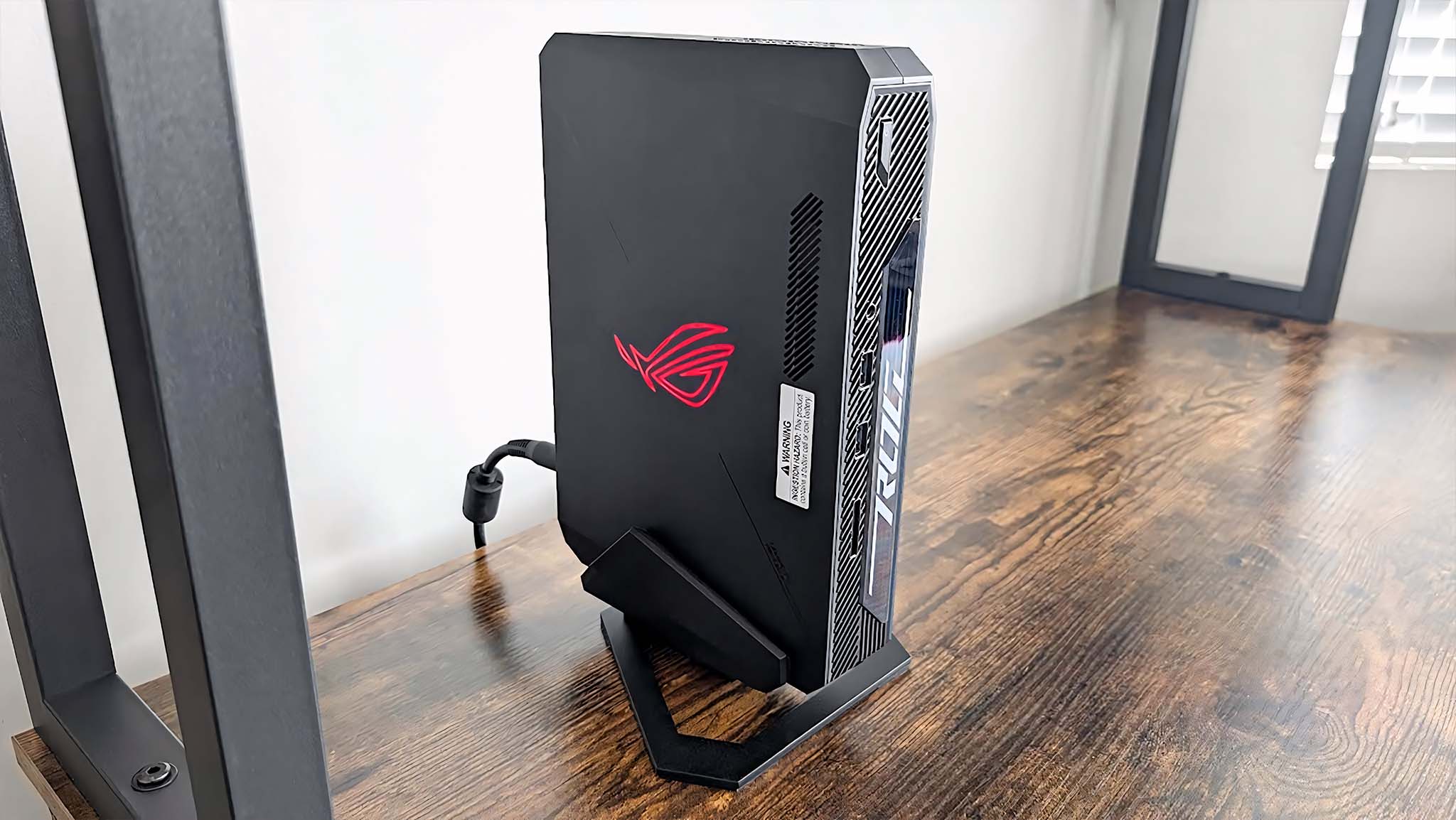
While the first wave of OEMs has the chops to deliver another compact gaming PC, a few brands have already made important steps towards dominating the handheld-like mini PC scene, primarily ASUS. If you've ever looked into the Steam Deck, chances are you've heard of the ASUS ROG Ally; the first Windows-based handheld to really challenge Valve's dominant position. The Ryzen Z1 Extreme ROG Ally is still my favorite Windows 11 option, particularly for its open access to PC Game Pass.
Lenovo is another likely pick, potentially designing a Steam Machine to fit within its Legion gaming subbrand, alongside the Windows-based Lenovo Legion Go and its successor, the Legion Go 2. It's perhaps even more likely to see Lenovo adopt the Steam Machine than even ASUS, as it already experimented with Valve's OS in its Legion Go S (SteamOS) handheld.
In the same vein, I wouldn't be surprised to see Acer and MSI join the conversation, based on their experiences with the 11-inch Acer Nitro and Intel-based MSI Claw handhelds, though the latter is shy about US availability with AMD-based Claw models. Essentially, I'd wager that we're far more likely to see current players throwing their hat into the Steam Machine ring than we would see a return from the likes of Falcon Northwest, or even a long-awaited attempt from the gaming specialists at Razer.
I wouldn't be surprised to see Acer and MSI join the conversation, based on their experiences with handhelds.
Besides, none of this speculation should discount Valve's in-house efforts. While its own Steam Machine looks like an Xbox Series X sliced in half, it could end up being one of the best, if the Steam Deck is anything to go by, and if it can undercut console pricing. I know that I'm already tempted to put some budget aside for the eventual launch, hoping anti-cheat is less of a problem by then, but I'd happily be swayed by an OEM offering a few extra features or a more exciting design — again, something Razer could excel at, if only they'd try something outside of monstrous Blade 18 gaming laptops.

Follow Windows Central on Google News to keep our latest news, insights, and features at the top of your feeds!

Ben is a Senior Editor at Windows Central, covering everything related to technology hardware and software. He regularly goes hands-on with the latest Windows laptops, components inside custom gaming desktops, and any accessory compatible with PC and Xbox. His lifelong obsession with dismantling gadgets to see how they work led him to pursue a career in tech-centric journalism after a decade of experience in electronics retail and tech support.
You must confirm your public display name before commenting
Please logout and then login again, you will then be prompted to enter your display name.
